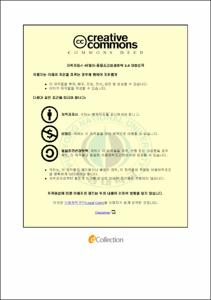협동학습이 초등학생의 영어 어휘력과 어휘 학습태도에 미치는 영향
- Alternative Title
- The Effects of Cooperative Learning on Elementary School Children’s English Vocabulary and Vocabulary Learning Attitude
- Abstract
- The current situation of English education in Korea emphasizes the necessity
of vocabulary and vocabulary learning. However, research on specific teaching methods for effective vocabulary learning and the application of various vocabulary learning methods are not so active, and the gap in vocabulary competence among students is increasingly large. Owing to factors such as the large gap in vocabulary competence and insufficient classes for vocabulary learning, vocabulary learning is often offered just in the form of simple assignment in school education.
The process and results of individual learning vary according to individual students' ability. Thus, this study considered cooperative learning as an alternative that can narrow the vocabulary gap among students and, at the same time, enables effective vocabulary learning. The objective of this study is to examine the effects of cooperative learning on elementary school children?fs English vocabulary and vocabulary learning attitude by comparing cooperative learning with individual learning. For this purpose, we set research questions as follows.
First, vocabulary will be improved more in the cooperative learning group than in the individual learning group.
Second, the cooperative learning group will have a more positive attitude toward vocabulary learning than the individual learning group. In order to answer these questions, we sampled two 6th grade classes at D Elementary School in Busan Metropolitan City as an experimental group (n=26) and a control group (n=27), respectively, and performed vocabulary learning for 4 weeks through cooperative learning for the experimental group and through individual learning for the control group. Each group had a pretest and a posttest on vocabulary and vocabulary learning attitude, and the results were analyzed using SPSS. Conclusions drawn from this study are as follows.
First, cooperative learning was more effective than individual learning in improving elementary school childrens' vocabulary.
Second, cooperative learning had a higher effect on vocabulary improvement in elementary school children whose vocabulary level was medium or low.
Third, cooperative learning was more effective than individual learning in developing elementary school children's positive vocabulary learning attitude.
Fourth, cooperative learning had a higher effect on the development of positive vocabulary learning attitude in elementary school children whose vocabulary level was medium.
Fifth, cooperative learning is particularly helpful to improve interest and confidence among the sub factors of vocabulary learning attitude.
These results suggest that cooperative learning can improve elementary school children's vocabulary and has a positive effect on their vocabulary learning attitude. Based on these conclusions, we made suggestions as follows.
First, for more effective vocabulary learning, we need to design learning methods that can induce students?f active participation in vocabulary learning.
Second, the specific application and utilization of cooperative vocabulary learning can be an alternative that reduces teachers' burden and produces satisfactory results of learning.
Third, we need to make in depth research on vocabulary learning based on cooperative learning that can embrace students of different levels.
Fourth, in order to improve elementary school children’s vocabulary effectively, we need to develop materials for objective assessment, which can compare and measure students’ vocabulary accurately and provide feedback immediately.
- Issued Date
- 2010
- Awarded Date
- 2010. 8
- Type
- Dissertation
- Publisher
- 부경대학교
- Department
- 교육대학원 초등영어교육전공
- Advisor
- 오준일
- Table Of Contents
- Ⅰ. 서 론 1
1. 연구의 필요성 및 목적 1
2. 연구 문제 4
3. 용어의 정의 4
4. 연구의 제한점 5
Ⅱ. 이론적 배경 7
1. 어휘와 어휘력 7
2. 학습태도 11
3. 협동학습 18
4. 선행 연구 분석 31
Ⅲ. 연구 방법 35
1. 연구 대상 35
2. 연구 도구 36
3. 연구의 설계 41
4. 연구의 실행 43
5. 자료의 수집 및 분석 48
Ⅳ. 연구 결과 52
1. 연구 문제 1의 결과 52
2. 연구 문제 2의 결과 57
Ⅵ. 결론 및 제언 63
1. 요약 및 결론 63
2. 제언 66
참고문헌 70
부 록 70
학습 목표 어휘 목록 74
학습 회차별 어휘 목록 75
사전 어휘력 검사지 76
사후 어휘력 검사지 77
어휘 학습 태도 설문지 78
- Degree
- Master
- Files in This Item:
-
-
Download
 협동학습이 초등학생의 영어 어휘력과 어휘 학습태도에 미치는 영향.pdf
기타 데이터 / 1.54 MB / Adobe PDF
협동학습이 초등학생의 영어 어휘력과 어휘 학습태도에 미치는 영향.pdf
기타 데이터 / 1.54 MB / Adobe PDF
-
Items in Repository are protected by copyright, with all rights reserved, unless otherwise indicated.